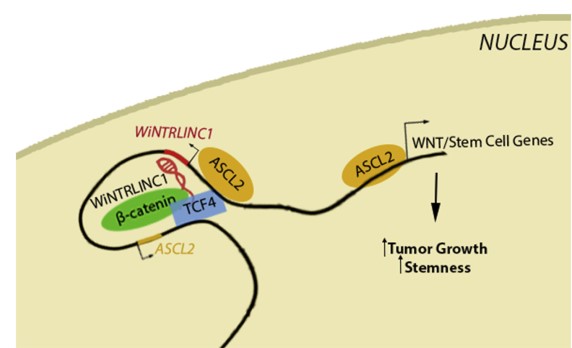Long non-coding RNAs have emerged as central regulators of cellular homeostasis in health and disease. They are involved in a variety of cellular functions, the nucleus, the cytoplasm and other locations. These functions range from the regulation of chromatin organization, gene transcription and splicing, to mRNA transport, stability, and translation, to protein stability, post-translational modifications, and function. Recently, a group of lncRNAs have been additionally demonstrated to encode for small proteins, which can exert various cellular functions.
We are interested in several aspects of lncRNA function in cellular homeostasis and disease. We study lncRNA molecules that influence gene expression in the nucleus in cis, regulating the transcription of nearby protein coding genes. We have also identified lncRNAs that encode for novel small proteins localized to different cellular compartments.
Our specific aims include:
- Elucidating the mechanisms by which nuclear lncRNAs affect transcriptional regulation of their gene targets and their contribution to homeostasis and carcinogenesis.
- Elucidating the functions of lncRNA-encoded small proteins and their roles in cellular physiology.
We use a number of experimental approaches to address these aims, including various methodologies of CRISPR-Cas-mediated manipulation of cell lines, imaging, proteomic and genomic applications. Using a variety of such techniques, we strive to expand our understanding of the role of this exciting family of molecules in cellular function and to explore their potential as biomarkers and therapeutic targets in disease.
